- People
- Mike Kruglik
- Ryan Lizza
- David Mendell
- Will Burns
- Pete Rouse
- Ron Brownstein
- Ben Wallace-Wells
- Robert Gibbs
- Related Links
- Obamanomics
"Obama does have an economic ideology. It's just not a completely familiar one. Depending on how you look at it, he is both more left-wing and more right-wing than many people realize." (The New York Times, Aug. 20, 2008) - The Phenomenon
According to this review of The Audacity of Hope, "the book's most interesting aspect is the author's deep ambivalence about contemporary politics. The chapters boil down to a pattern: here's what the right believes about subject X, and here's what the left believes; and while I basically side with the left, I think the right has a point or two that we should consider, and the left can sometimes get a little carried away." (The New York Review of Books, Nov. 30, 2006)
Mike Kruglik Community organizer

Obama and I were meeting with a group of leaders one evening on the South Side [of Chicago]. And after these meetings, we would get together and debrief. … And after we got through with the debriefing, as we're walking out to our cars in the parking lot, this panhandler comes up to Obama and he asks him for a dollar.
Obama then did something that I don't think I'd ever seen anybody do, including myself. He looks at the young man, he says, "Now, young man," he says, "You are better than that." He said, "You're embarrassing yourself and you're embarrassing the community. You need to reflect on what you can do to get yourself straight." And he walks away.
What does that show about Obama? Well one thing that it shows is tough love, otherwise known as agitation in the lingo of an organizer. You're agitating people to be better instead of commiserating with them about their fears and their weaknesses. You're challenging them to be better. And, you know, after I told that story, a reporter asked Obama, what did he think about this idea of agitation? And he said, "It's a way of scraping away bad habits that one person does for another person out of concern for that person's strength and power and potential."
But of course, there's something else that one learns from that episode. And that is, Obama believes that everybody deserves a decent shot at life. But he doesn't believe that that's going to be handed to you. It's not a matter of giving handouts. It's a matter of people realizing their own potential like he has himself.
So later on, when welfare reform became an issue in the State of Illinois, he didn't just say, "I'm against welfare reform, period." He understood that it's a bad idea to pay people not to work. But he wanted to make sure that if we were going to reform that system, that there would be transportation and child care and necessities that people would need to move from poverty into work.
Ryan Lizza The New Yorker
 Read the full interview >
Read the full interview >
He's a cautious guy. And he's a deliberate and, in a sort of old-fashioned sense, a conservative guy. I think that's one of the things that people miss about him. They mistake the message of change for being somehow an ultra-left-winger or something.
If you think about … what he wants to change, it's sort of a correction back to the center in American politics. The argument to the Obama campaign is that the last eight years have been ideologically radical in one direction.
David Mendell Author, Obama: From Promise to Power
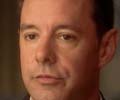 Read the full interview >
Read the full interview >
Did he have a message [in his 2000 congressional race against Rep. Bobby Rush]? What was the message?
It was very much the same message he has now. If you look back at the quotes he was giving and the long interviews he gave, it was very much this theme of unity: We can all get along with one another. We should help the most vulnerable in our society. We need to rebuild our communities from the ground up. It was much the same message. That has not changed. It's just [that] it was a different political dynamic in that race and at that time. ...
Will Burns Deputy campaign manager, Obama '00; campaign staffer Obama '96
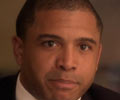 Read the full interview >
Read the full interview >
I think what Barack's strategy is, is to emphasize the common challenges that black and white Americans face. And in the process of addressing these common challenges -- whether it's access to health care, or unemployment, or high fuel prices, or the need for foreign policy that defends the entire country and protects us and makes us safe -- you are able to address some of those structural inequalities without highlighting the fact that that's what you're doing.
When you're a politician, you don't pass bills because they're good ideas. You pass them because, in the Illinois Senate, you were able to get 30 votes, and in the House, you were able to get 60 votes, and were able to get it signed into law by the governor.
And so you think, from that perspective, "How can I bring as many people on board to this idea? I need to bring the downstaters on board. I need to bring the Latinos on board. I need the African Americans with me. I need to keep the liberals happy." … So you've got to figure out a way to make all these disparate parts work in order to move your agenda.
Pete Rouse Chief of staff to Sen. Obama
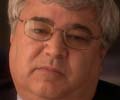 Read the full interview >
Read the full interview >
I believe that his rhetoric or his pitch about working together to solve big problems and building consensus, that's how he thinks. That's what he's always done. It goes back to his days as a community organizer. That's what he brought to the Senate; that's what he brings to the White House.
But that doesn't mean -- and I don't want to be disparaging here -- but criticism of the DLC [the centrist Democratic Leadership Council] is, find the lowest common denominator and pass it. That's not what he's talking about here. I think he's talking about moving forward with a progressive agenda. Clearly it's not going to be 100 percent of what you want, but we can do better. And we can get 65-70 percent, 75 percent, whatever it is, if we work together and are honest about it and, obviously, build popular support for it. …
It's a different approach to trying to make progress and move forward. It's not necessarily better, not necessarily worse, but it's different. And when something's different, not what people expect, sometimes you get skepticism or resistance. ...
Bottom line is, it's putting the ball forward. It's moving ahead.
Moving forward. And the question is, where? Because I think you have to have a bottom line. And if you say health [care] reform or education reform or FISA [Foreign Intelligence Security Act], whatever the case may be, I think going in you have to know what your bottom line is, and you're not going below your bottom line. ...
Ron Brownstein The National Journal; author, The Second Civil War
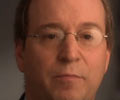
With Obama, you're getting a candidate who I think is clearly committed to a different style of how leadership works; that it is not simply a matter of mobilizing elites, and not even simply a matter of the bully pulpit of the president talking at the country.
I think he has a vision of leadership, growing out of his experience, to a large extent, as a community organizer, that is much more of a president talking with the country, a much more interactive kind of style of leadership. One of the most fascinating things if he gets elected president will be how you apply the kind of networked style of organizing and campaigning that he has done so well during the election to governing. Could that be applied to governing? …
We have someone in Obama whose life has been to a large extent, in personal terms, about reconciling differences and building bridges. Mixed race, mixed nationality, feeling like a fish out of water in many communities -- in the white community, in the African American community -- trying to find his place where he fits in, I think has given him a kind of integrative view of how you pursue change and how you make things happen in the same way that perhaps Bill Clinton's growing up in a family with an alcoholic instilled his desire to be someone who would find ways to make peace and to find ways to synthesize ideas that seemed incompatible.
So, Obama has a personal, I think, inclination toward being a bridge builder. What we don't know really -- and it's remarkable that we don't know, given how much he stresses it -- is whether he has fully the political inclination to be a bridge builder, whether he is willing to take the risk of conflict with his own coalition as the means of doing what he has promised above all to do, which is bridge some of these divisions in the country and to move us beyond this red-blue divide.
That's not cost-free. If you want to find ways to talk to economic interests that haven't been part of your coalition, much less bring in Republicans and Congress to vote for your initiatives, it's not enough to kind of be accessible and friendly and talk to people. You've ultimately got to deliver. And delivering means you have to do things that may antagonize people who you're friendly with. And we don't know really if Obama is willing to do that to the extent his rhetoric suggests. There really haven't been a lot of examples of it in Congress, in the Senate, and not really on the campaign trail.
He started off talking about merit pay for teachers, which antagonized teachers' unions. He didn't talk about that very much by the time the primary got going, and he seemed literally to walk away from it. He talked originally in the spring of '07 about everything being on the table in Social Security. By the fall, raising the retirement age and other benefit cuts were off the table. So, we don't know … when he talks about transcending partisan difference, what that means to him. Does it mean asking for sacrifice from your own side?
Ben Wallace-Wells Rolling Stone

He's come from sort of two cultures independently. One of which is this kind of community organizing, left-wing culture and the other of which is this sort of counterintuitive academic culture. And so you have odd choices like Austan Goolsbee, who's a kind of freakonomics-ish, counter-conventional, counterintuitive figure running his economic policy.
So from each of these backgrounds, you have a kind of deep skepticism about American power and how it's constructed and how it's yielded. And I think the idea that somebody who is young and has a fresh idea might aspire very quickly to overturn all of that and sort of run things, is less shocking and surprising if you start with much less piety towards American power in general.
Robert Gibbs Communications director, Obama campaign
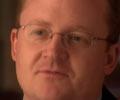
One of the things that Sen. Obama wanted -- I mean, he didn't want to just change the electorate to win an election. He wanted to change the electorate because he wanted a group of people that either had never participated or hadn't participated in quite some time to participate again. Because the truth is, it's not just about winning an election. It's about changing the country and the way the country works.
And he understands that the only way that you're going to do that last goal of changing the way this country works is to get a group of people from the bottom up involved in the political process like they've never been involved in before, to demand that type of change. And that's the way we looked at each one of these states is, how do we go into a place that Democrats never go to? How do we go into a North Dakota? How do we go into some of those smaller states? How do we go into Nebraska and Kansas and make sure that people understand that we're serious about coming here, we're serious about bringing out and identifying people that are looking for change? And how do we keep those people involved?